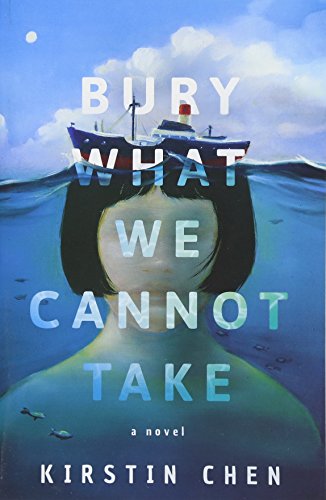Bury What We Cannot Take
1957: Drum Wave Islet in Xiamen, central China is a place where Communism has been fully incorporated into every facet of politics, the economy, and culture. All is not well in every Communist home. A son, Ah Liam, reports to the Party that his grandmother took a hammer to the revered photo of Chairman Mao Tse Tung. He’s trying to prove he is totally dedicated and ready to join the Young People’s Party. As a result, his family is basically ruined. There are only two options: submit to public correction or flee to Hong Kong, where their father lives and carries on his business. The remainder of the novel is deeply intense, as the family attempts to obtain exit visas to Hong Kong by lying about their “dying” father. This is followed by the agonizing command that only three may leave: the grandmother, Bee Kim; the mother, Seok Koon; and the son, Ah Liam. The daughter, San San, is forced to stay behind with the cook and maid.
The momentous impact of this choice to leave behind a daughter and sister is almost beyond words. The strength of this memorable novel lies in the author’s depiction of the contrast among their dreams of a better future, the stark reality of events that belie faith in political promises, and the unraveling of personal and political visions. The evolving conflict about “choices” is heartrending. Questions about the meaning of life in the face of betrayal will haunt readers for a long time. This is a vital contribution to historical fiction about Chinese families, choices, loyalty, corruption, and abiding love that surpasses politics. A highly recommended, memorable fictional account!










